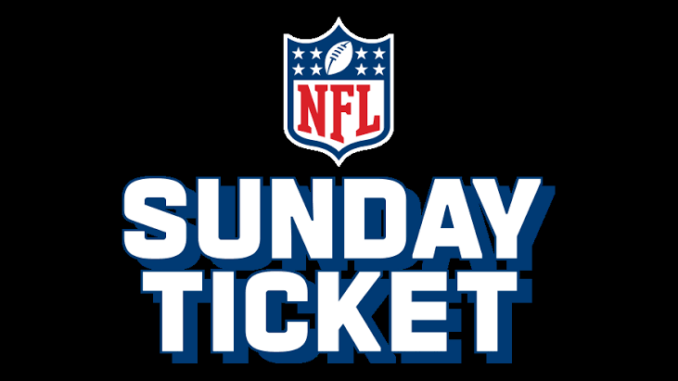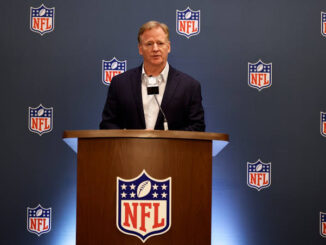
Last week’s $4.7 billion jury verdict against the NFL in the Sunday Ticket class action was a stunning defeat for a league not accustomed to losing.
But the game isn’t over yet.
In the coming weeks, months and probably years, the NFL will hope the legal system’s version of instant replay reverses or at least softens a decision that, left unchanged, could radically alter how NFL teams broadcast games and to what degree out-of-town fans can watch their favorite team play.
The gist of In Re: NFL’s “Sunday Ticket” Antitrust Litigation is straightforward. NFL teams are competing businesses. Under antitrust law, competing businesses are supposed to compete. Consumers—the focal point of antitrust law—are generally better off when businesses compete since that usually sparks lower prices, more choices on products and services and more innovation by businesses who must evolve or face extinction.
When NFL teams coordinate, their coordination should not cause more economic harm than economic benefit. The case largely turns on whether their coordination in the context of broadcasting rights is, on balance, good or bad for consumers.
To that point, NFL teams agree to pool their broadcasting rights in deals that enable local fans to watch games freely and over-the-air (unlike local fans of NBA, NHL and MLB teams as they typically must pay to watch via a subscription sports cable channel). It would be difficult to credibly argue the NFL’s approach to broadcasting is bad for consumers who live near their favorite team. The NFL is also wildly, and incomparably, popular with American viewers: Last year NFL games accounted for 93 of the year’s 100 most-watched TV broadcasts in the U.S., a category that includes popular TV shows, the Olympics and political programming. There’s something to be said for don’t fix what’s not broken.
But for out-of-town fans, the situation isn’t so priceless. NFL teams pool their broadcasting rights through the Sunday Ticket, which is available for residents through YouTube TV. The cost for residents is $349/year (or less with discounts) while bars and restaurants, through DirecTV, pay thousands of dollars a year depending on fire code occupancy.
The upside for out-of-town fans: The Sunday Ticket ensures access to every game, regardless of where they live in the U.S. A Chicago Bears fan living in San Diego, a Miami Dolphins fan living in Houston, a Seattle Seahawks fan living in Boston can all watch their team on TV, every week, from the comfort of their home.
The downside? Paying a sizable fee for a lot of content some fans don’t want.
That Bears fan might not want to watch the Dolphins or other AFC games, and while that Dolphins fan may be curious about games played by the rival Buffalo Bills and New York Jets, they might not care enough to watch. What those fans probably prefer is the chance to pay much less to just watch their team. Instead of a Sunday Ticket, a “Bears Ticket” or “Dolphins Ticket” that costs, say, $50 instead of $350, would be better.
The class action plaintiffs—who represent more than 2.4 million residential subscribers and more than 48,000 restaurants, bars and other commercial establishments that purchased Sunday Ticket from June 17, 2011 to Feb. 7, 2023—insist the Sunday Ticket reflects competing businesses (NFL teams) illegally conspiring to not compete and thus manipulating prices.
But the league has repeatedly warned the economics are not so simple. If teams can’t pool their out-of-town broadcasts through the Sunday Ticket, teams and the league would need to reconsider broadcasting deals for both local and out-of-town fans. The NFL has also stressed that the Sunday Ticket is a guarantee that games can be watched. In a world without the Sunday Ticket, what’s to say the Bears will find a broadcasting partner to air games in San Diego or that the Seahawks will view it as economically sensible to broadcast games in New England Patriots country? Even if all 32 teams land TV deals in all the major markets, some fans living in rural areas could still be left out.
The NFL will likely make several motions in preparation for a July 31 hearing before U.S. District Judge Philip Gutierrez. A certain one is a judgment notwithstanding the verdict or JNOV. The NFL will argue the jury acted unreasonably in light of evidence presented at the trial and misapplied the law. Unfortunately for the NFL, judges rarely grant JNOV motions. Although Gutierrez seemed unconvinced about the plaintiffs’ case at times during the trial, judges are usually hesitant to conclude the jury so badly fumbled its role that its decision should be rejected. Judges tend to respect jurors, even in complex antitrust cases, since the jury system is foundational to the American legal system.
Gutierrez denying a JNOV motion would be important procedurally for the NFL in terms of an appeal. The league can’t petition the U.S. Court of Appeals for the Ninth Circuit with an argument that the jury got it wrong—that’s not an accepted basis for appeal in the American legal system. The NFL would instead need to establish that Gutierrez erred in applying the law, such as (the league would argue) him denying a JNOV motion or in how he admitted or denied certain evidence and testimony.
The NFL could also ask Gutierrez to lower the damages award (called “remittitur”) and drop or modify how the decision will compel the league to alter broadcasting arrangements. The league might contend $4.7 billion dollars is unsupported by the facts and that Gutierrez would be making a miscarriage of justice by keeping that amount in place.
Arguably the most interesting aspect of the case is how it will impact consumers. The league, obviously, does not want to alter its broadcasting arrangements. It produces the most popular viewing product in America and that has contributed to soaring franchise valuations for owners. Players also have benefited since the salary cap is tied to broadcasting revenue.
The NFL could ask Gutierrez to allow it time to study alternatives to the Sunday Ticket that do not necessitate the pooling model be dropped. Perhaps the NFL suggests a modified version of the Sunday Ticket where fans have more choice and can pay less to watch games from one conference or even one division (but not just one team).
Whether the economics work for teams is unknown, but compromise broadcasting arrangements could be in the cards.
The NFL could also try to play the long game. The league could not only appeal to the Ninth Circuit but seek a stay, which would postpone implementation of the jury’s verdict until after all appeals have been heard. A stay would mean class members aren’t paid and the NFL doesn’t have to change its broadcasting arrangements unless the appeals fail. Ninth Circuit appeals are regarded as fairly slow-moving, sometimes taking several years, and the NFL could later appeal to the U.S. Supreme Court.
Although the Supreme Court only takes on average about 1% to 2% of petitions, at least one justice seems very interested in the Sunday Ticket litigation.

Be the first to comment